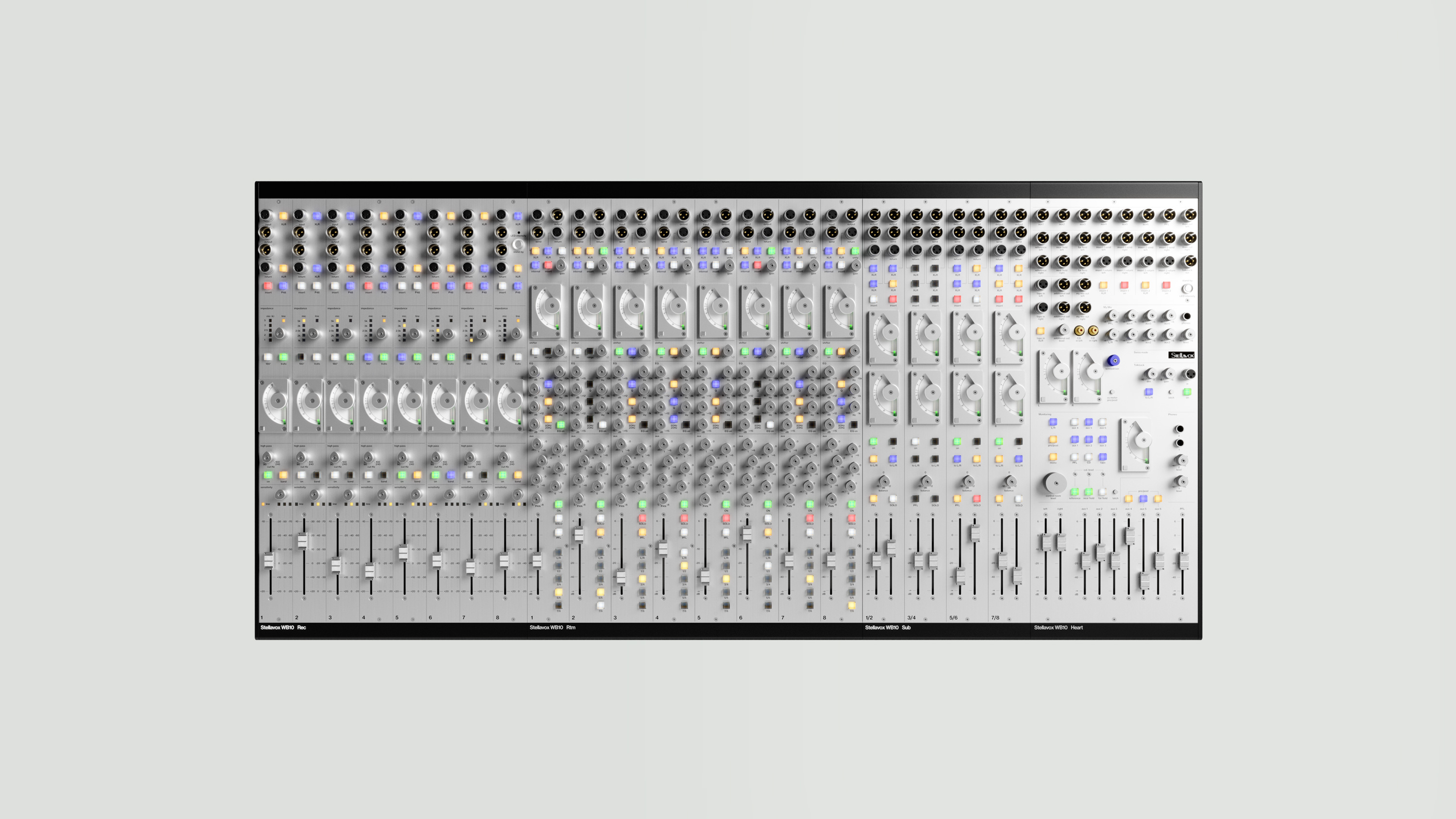Swiss made
Since 1953
Stellavox
The motivation behind every stage of our research, development and production process comes from the wish to create exclusive products with exceptional sound quality and longevity, which ignite passion in the user, and reflect the true spirit of Stellavox while embracing the technologies of today.
Products
Products
Seventy years of history
1955
1956
1959
1960
1963
1969
1966
1967
1970
1971
1975
1979
1987
1988
1989
2017
2018
2020
2022
2023
1955
Georges Quellet establishes Stellavox in Haute-Rive, Switzerland.
1956
Quellet hires his first employee and the Sm0 tape recorder is produced, quickly followed by the Sm1 and Sm2. With the launch of the Sm3, Stellavox brings the smallest-ever tape recorder to market.
1959
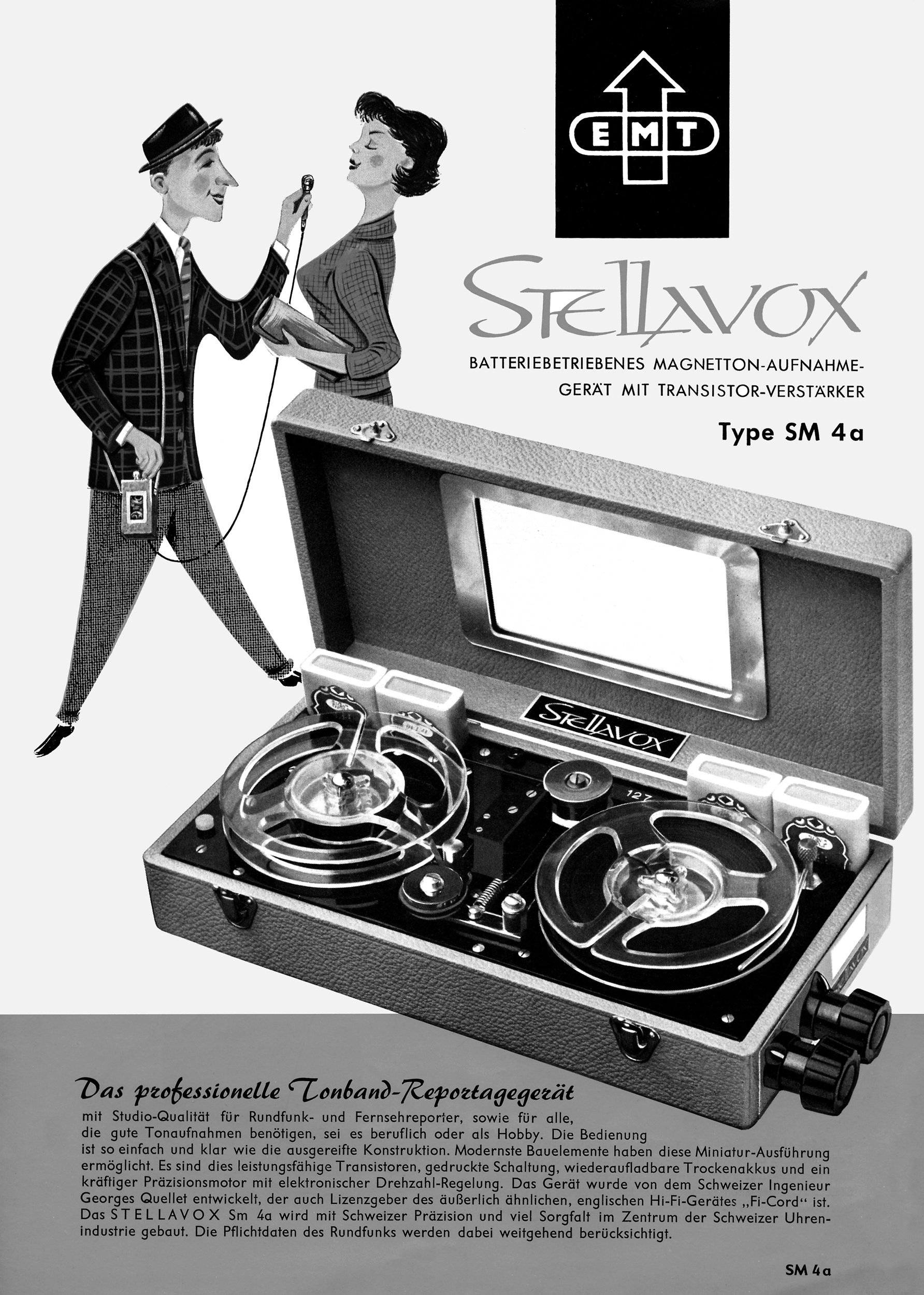
Advertising the successful SM-4
Further developments lead to production of the Sm4 and Sm5. The company grows and new employees are hired.
1960
Eight people now work in the Stellavox laboratories. Thanks to its reliability and excellent sound quality, the Sm5 proves a resounding success and becomes a firm favourite with radio journalists and documentary film directors.
1963
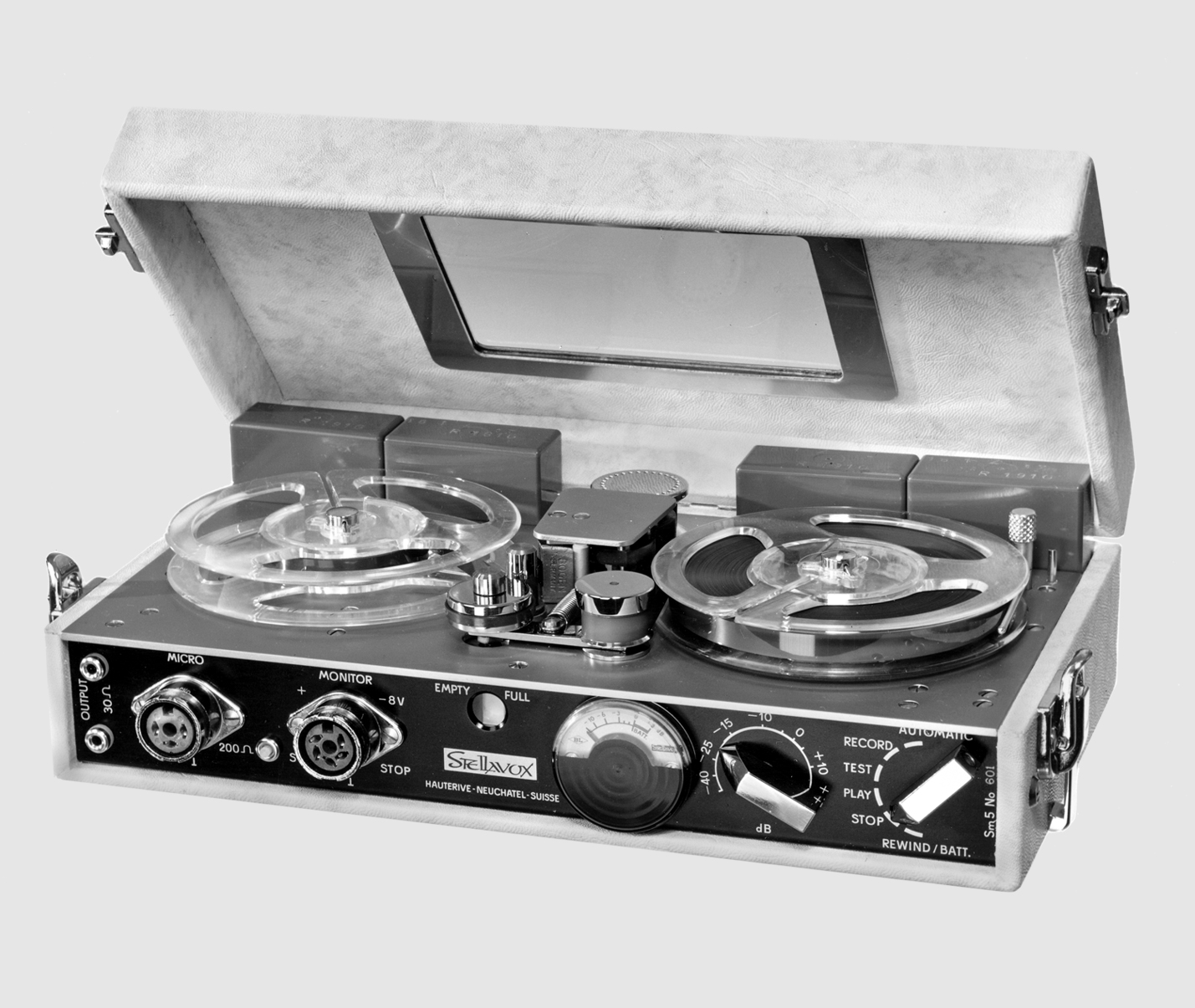
SM4, the smallest tape recorder at the time
Stellavox now has 12 employees. Demand for the Sm5 stretches production capacity to the limit. The company has grown too fast and financial problems arise. The construction of a new factory building becomes an additional burden.
1969
The Stellavox company is sold to Stefan Kudelski, founder of Nagra. Production of the Sm5 is discontinued and no further Stellavox recording devices appear until 1969.
1966
Georges Quellet, now back at work, is single-handedly developing a new leading-edge compact tape machine in his improvised laboratory.
1967

SP7, the first modular recorder
Together with former employees Gustav Brix and Jean-Pierre Gurtner, Quellet produces the modular SP7 tape recorder. This proves no mean feat: aside from developing the recorder itself, all production tools and fixtures also have to be built from scratch.
1970
The new SP7 is a great success. Quellet is now able to buy back the former factory building and secure the Stellavox brand.
1971
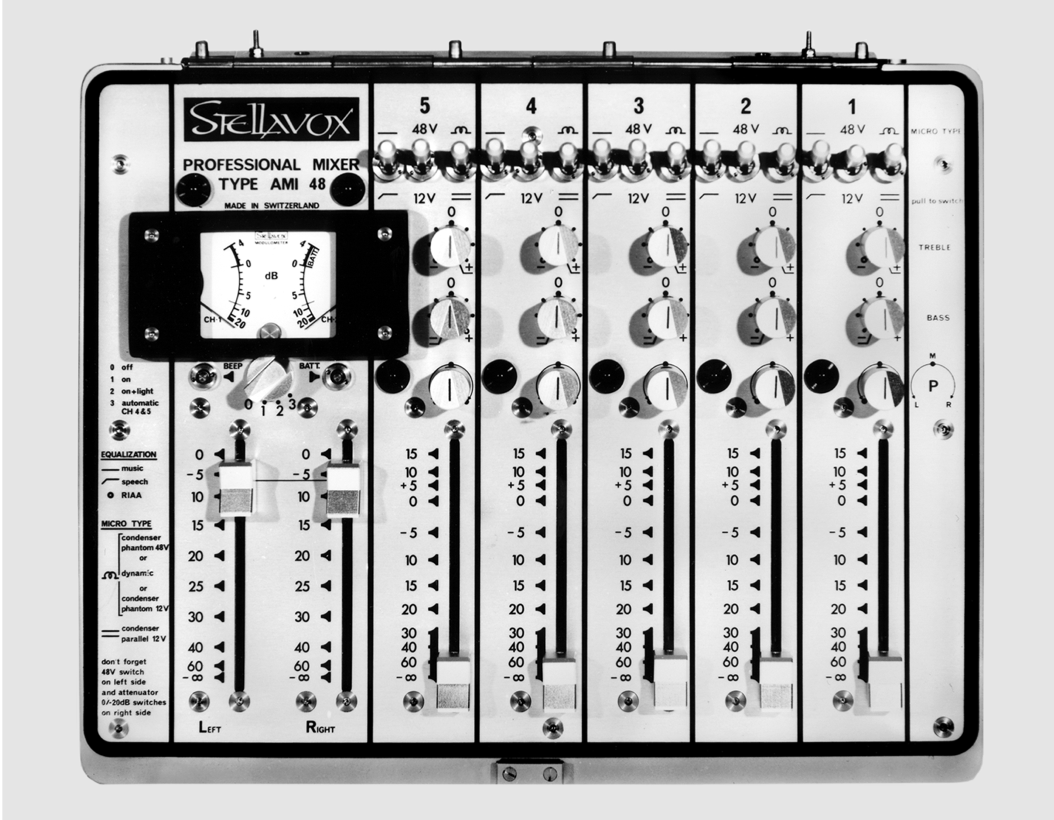
The portable mixer AM48 closes a gap between microphoning and recorder
The much longed-for Stellavox AM11 mixer is developed and launched. Other mixers are to follow including the AMI48 in1974 and, very much later, the WB10 in 2020.
1975
50 people now work at Stellavox and over 2000 SP7 recorders are sold in the period up to 1977. Further work on developing the SP8 begins, and another successful product appears in 1976.
1979
Quellet explores new markets with the development of the TD88 studio tape recorder, followed a few years later by the TD9. These recorders are fully modular: by replacing the head blocks they can be set up for all common tape sizes. Considered by many to be the best recorder ever built - digital or analog - the TD9 remains one of audio history’s most respected products. Foto 75_td88.tiff allg Bilder testo: “Georges Quellet with his first TD88”
1987
Stellavox experiences further problems. Developing the TD88 and TD9 has pushed the company’s financial resources to the limit. Moreover, the emerging trend towards digital devices, especially in the portable recording market, has a negative impact on Stellavox sales.
1988
Quellet is forced to close the company, selling both the building and its facilities.
1989
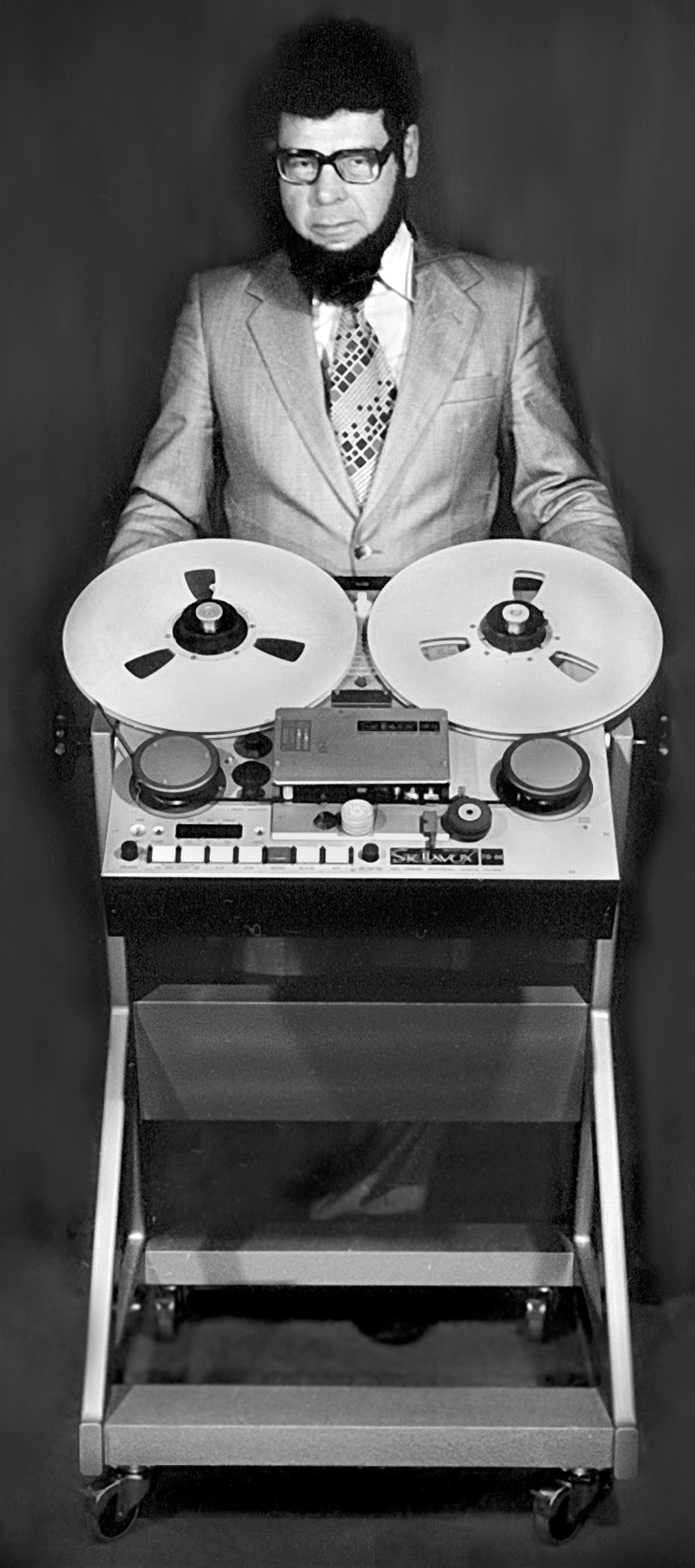
Gorges Quellet shows the modular tape recorder TD88
Jean-Pierre Gurtner and Jean-Michel Simonet (development and production engineers at Stellavox since 1968) take over the machinery and service facilities for the tape recorders.
2017
Despite the sudden death of Gurtner, Simonet continues to service Stellavox recorders and mixers. He meets Stephan Schertler, a Swiss audio electronics engineer and a big fan of the brand since first using an SP8 in 1988. Schertler decides to continue with Stellavox and to develop new products.
2018
The team begins intensive development of new products in the spirit of Stellavox and Georges Quellet. New team members include Claudio Furno and Leonardo Sedano, experienced engineers who have previously worked on a range of audio projects with Stephan Schertler.
2020
On 9 th March, Stellavox SA is founded. The company is based in Mendrisio, Switzerland. Carmine DeLuca, an acoustic engineer, joins the team. A pick-and-place machine is purchased for manufacturing electronic components. Intensive preparatory work commences prior to putting the latest generation of Stellavox products into production.
2022

Georges Quellet and Stephan Schertler working on electronic
Despite his advanced age, Georges Quellet, honorary president of the company, becomes involved in product development. The WB10‘s first REC module leaves the factory for performance testing in selected recording studios. This yields positive results.
2023
The REC module is in production, with further WB10 modules scheduled to follow. In addition to Stellavox’s pro audio products, a first series of phono preamps is delivered after many years of development.

